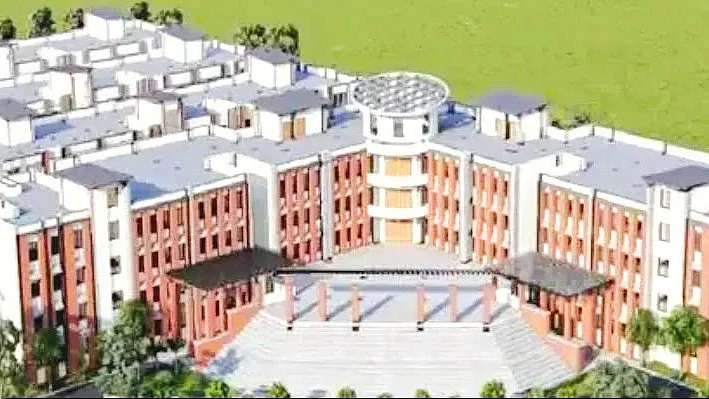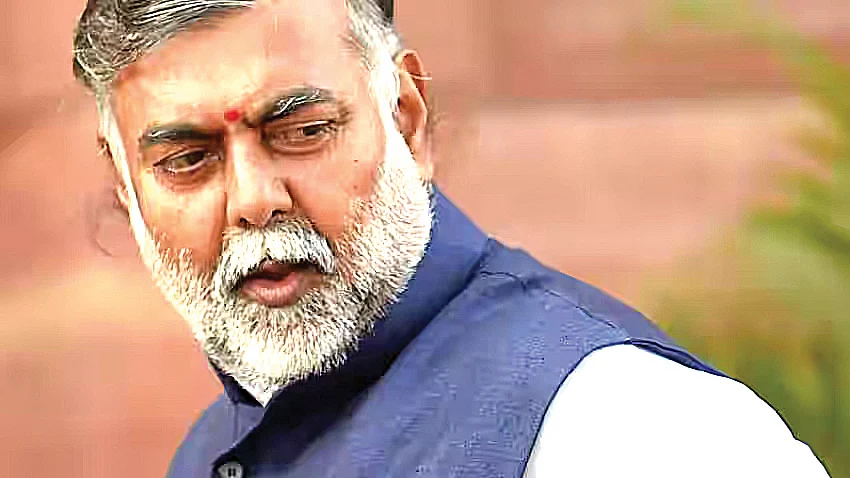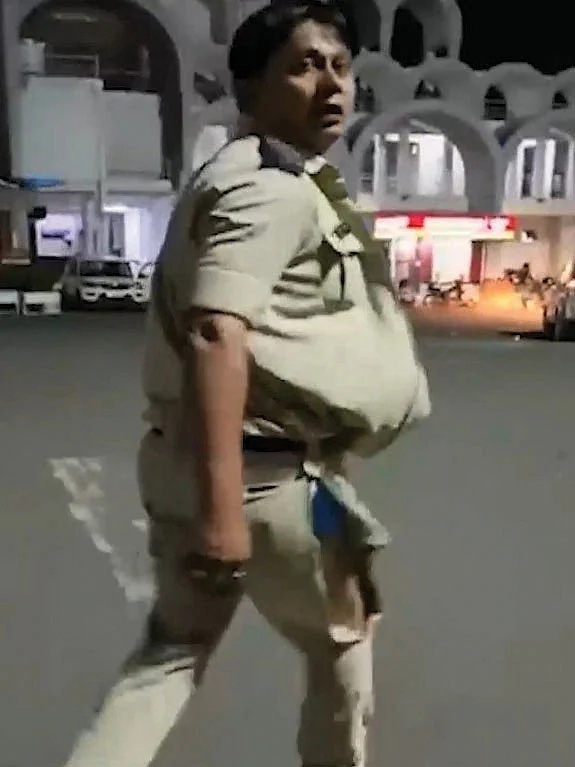Madhya Pradesh: The naming of Sainik Schools and the shoplifters of Jabalpur
Should a Sainik School be named after someone accused of serious criminal offences?

The defence ministry has approved the establishment of a new Sainik School in Gotegaon, Narsinghpur, Madhya Pradesh — making it the sixth in the state under the Public-Private Partnership (PPP) model. What has sparked widespread attention, however, is the proposed name: Monu Patel Sainik School, in memory of the late Maninagendra Singh Patel, nephew of state cabinet minister and former Union minister Prahlad Singh Patel.
The school, still under construction, will accommodate 200 students. On 28 April, Patel shared the approval letter from the Sainik School Society, which granted affiliation to the Maninagendra Singh Foundation. Monu Patel, who died in 2023, was the son of BJP MLA Jalam Singh Patel, Prahlad Patel’s brother.
The decision has triggered strong reactions, particularly from CPI(M) leaders. Pointing to Monu Patel’s criminal record, state secretary Jaswinder Singh condemned the naming as an affront to the institution’s values of discipline and integrity. Jailed for assaulting a Dalit, Patel had been released just two weeks before his death. “His wife also accused him of domestic harassment,” Singh said. He voiced his consternation at the idea of naming a Sainik School after someone accused of serious criminal offences.
Traditionally, such schools were named after distinguished public figures, freedom fighters, scientists or scholars, not individuals whose primary qualification appears to be family ties to a prominent BJP leader.
“I am even more shocked to learn that defence minister Rajnath Singh has agreed to inaugurate the school,” he said, adding that the CPI(M) would formally object to the move by writing to both the state governor Mangubhai Patel and the defence minister.
Multiple news reports bear out the allegations. In 2021, a Narsinghpur court sentenced Monu Patel and four others to one year in jail for a 2011 assault. Though he was granted bail, Patel was arrested again in 2023 for allegedly attacking a Dalit man in 2019.

While Patel’s office did not respond, Jalam Singh Patel denied all allegations against his son and said he himself had studied in a military school in Nashik and had wished to open a school in Narsinghpur. “Nothing was proven in any case. People keep making allegations of this sort but it was his dream and we are [fulfilling it] for the state’s youth,” the former BJP legislator said.
This will be the 80th Sainik School in the country and the sixth school in Madhya Pradesh to have signed a memorandum of agreement (MoA) with the Sainik Schools Society (SSS), an autonomous body under the ministry of defence (MoD). This is in accordance with the policy announced in 2021 to start 100 new Sainik Schools across the country in the first phase. According to the Society’s website, a thousand such schools are in the pipeline.
Approval is apparently being offered to any new or existing school run by governments, PSUs, NGOs, trusts and private sector organisations. The Union government provides partial fee support — up to Rs 40,000 annually for 50 per cent of students. Unlike the fully residential Sainik Schools set up earlier by the government, these schools under the PPP model would be allowed to have day scholars. An annual training grant to schools is an additional allurement.
However, the initiative has raised eyebrows for other reasons. The Sainik Schools Society website lists 38 operational schools, several of them Saraswati Vidya Mandirs affiliated to the RSS. It states that approval has been granted to ‘21 more schools in addition to the 19 which are already functional’. Preference will be given to students passing through these schools, which explains why RSS affiliates and BJP leaders are making a beeline to get approvals for affiliation to the Sainik School Society.
A textbook case of the ideological project of controlling education and cadre-building by the BJP and RSS-linked affiliates.
****

Showing some spunk
The much-maligned police in Madhya Pradesh — rightly criticised in the recent past for acting at the behest of hatemongers and politicians or not acting at all — have, for once, come in for some well-deserved praise.
When GRP (Government Railway Police) head constable Nazar Daulat Khan was assaulted at the Rani Kamalapati railway station — formerly Habibganj — they swung into action.
On patrol, Khan had noticed a group of young men drinking in a parked car. He asked them to leave, pointing out that they were violating restrictions on consuming alcohol in and around the station. When the defiant youth ignored his pleas, he threatened them with detention. Khan’s badge told them all they needed to know to launch into assault-mode: here was a Muslim.
A video clip of the incident shows the men punching the officer inside his official police vehicle. They obviously felt they could abuse and assault a Muslim and get away in this BJP-ruled state.
The clip quickly went viral. Jitendra Yadav was arrested at the scene. Two others, Dilip Ahirwar and Aman Yadav, were tracked down and arrested over the next couple of days. All three were paraded outside the station and made to chant: “Police humari baap hai, police par haath uthana paap hai (the police are like our daddy, it’s a sin to beat them up)”.
Officers confirmed that the attackers used religious slurs, and have charged them under Section 196 of the Bharatiya Nyay Sanhita (BNS) for promoting communal hatred. Dilip Ahirwar is a repeat offender, while Aman Yadav is reportedly a small-time contractor.
****
Lift and leave
In a curious trend, petty thefts have been on the rise in Jabalpur, with scooter-borne individuals stealing items like rasgullas, gutkha, and even salt — valued at less than Rs 500 in most cases. Poor CCTV footage and the low monetary value of the thefts have discouraged police from launching formal investigations.
Under Section 303 of the BNS, thefts worth less than Rs 5,000 are considered non-cognisable offences, leaving victims with no option but to file cases in court themselves.
As details spilled out about the thefts, people have largely been in splits. The story goes that the son of a confectionery shop owner under Sihora police station was caught napping one afternoon when two men arrived on a scooter. They had their faces covered, which caused no alarm, as people tend to do that in the summer months. They walked into the shop, calmly lifted a tin of rasgullas and two packets of gutkha, and left. The theft came to light the next day when the shopkeeper examined the CCTV footage. The total value of the stolen goods was placed at Rs 165, not enough for the police to investigate further.
In another locality, another scooter-borne person arrived at a shop, coolly picked up five packets of salt, priced at Rs 200 each, and left. Once again, the amount involved was too insignificant to be actionable.
While the public may find these accounts entertaining and sociologists may attribute them to economic distress, shopkeepers are alarmed. As one of them confided, if people learn how easy it is to ‘lift and leave’ with petty items, those tempting open displays would soon be a thing of the past.
Follow us on: Facebook, Twitter, Google News, Instagram
Join our official telegram channel (@nationalherald) and stay updated with the latest headlines
